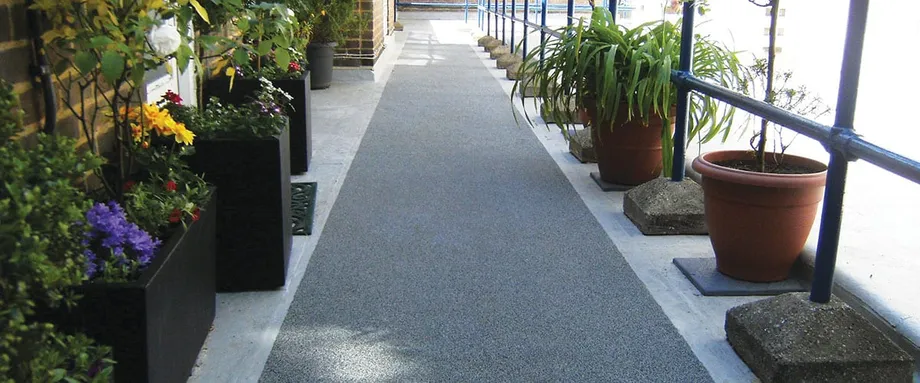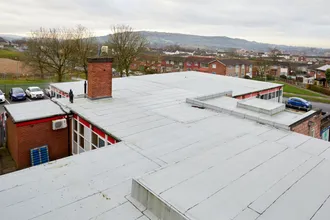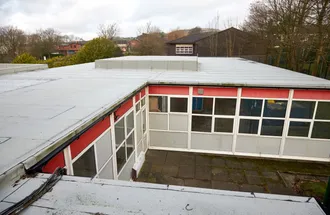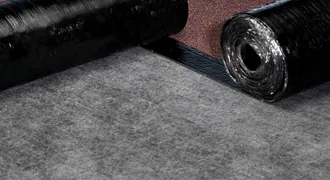Our country pages
Africa
Europe
Search
What Is A Liquid Waterproofing Membrane?
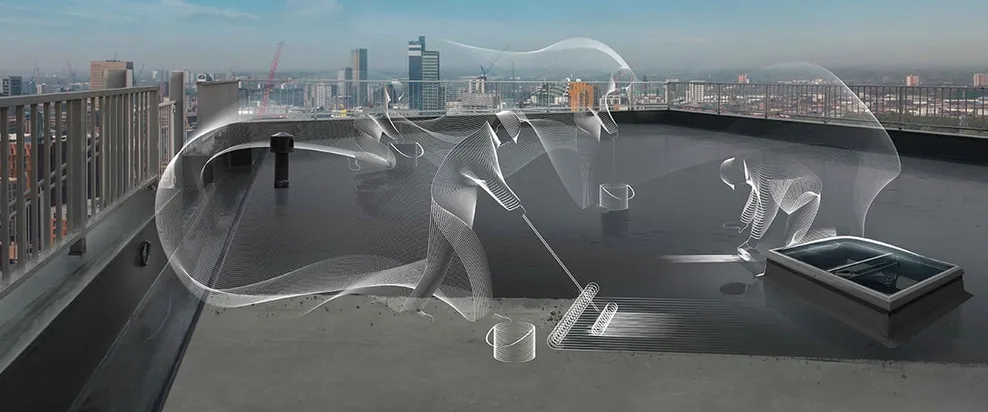
Liquid roofs are called ‘systems’ for a reason – they are built-up on site in layers. These layers create the waterproofing membrane that protects the roof from weather ingress. The material of the liquid itself will advise the system but a full solution involves the substrate, a primer, a base layer, reinforcement material such as polyester fleece, and a final top layer.
The coating must be left to cure to form its rubber-like waterproof properties. When choosing liquids, a roofer must consider the time it will take to cure, the complexity of the liquid i.e. will it require a catalyst to cure and which reinforcement membrane will be selected to achieve the desired system guarantee.
Jump to section
Types of liquid waterproofing system
Polyurethane
Polyurethane offers good chemical resistance and can be sourced in VOC – and odour-free variants, making it ideal for use on public buildings. It has a long curing time of 8 -24 hours. Unlike the more detailed system listed in our introduction, polyurethane solutions often need only a few components to be effective.
Bitumen
Hot melt bitumen is an almost timeless roofing material known for its robustness. However, it must be melted to apply and requires specialist equipment to achieve this. It offers a robust finish and fast-application but does have odours and VOCs.
Polymethyl Methacrylate
More expensive than polyurethane but offers 20-60 minute curing times, this material emits strong odours and often contains solvents. It is a multi-component membrane solution and can therefore be more complex and time-intensive. Also the fast curing time requires a quick and accurate installation with high attention to detail. Not a system for beginners.
Benefits and weaknesses of liquid systems
Benefits and weaknesses of liquid systems
Liquid waterproofing offers perhaps the quickest and most hassle-free way to create waterproofing membranes. The BMI Sealoflex Ultima system, for example, requires 4 stages for an effective system – with a primer, an embedment layer, reinforcement fabric and top layer creating a fully waterproof solution. It also cures on its own and requires no accelerants.
Liquid waterproofing is often used to create trafficable areas such as car parks and balconies.
These elements also make liquid waterproofing ideal for refurbishment. When a roof is coming to the end of its life, liquid waterproofing can be applied seamlessly over the top to create a bond to the substrate that works over fibre cement, metal and single-ply. It is a cost-efficient refurbishment and repair system that is also becoming increasingly popular in new builds.
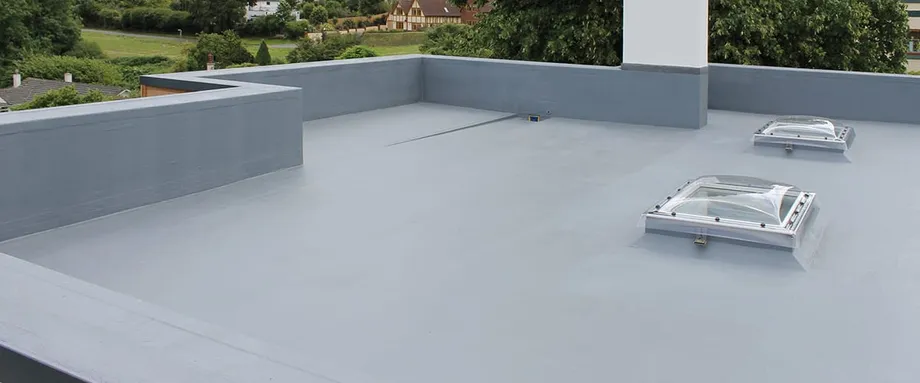
Liquid waterproofing for details and inversions
Liquid waterproofing for details and inversions
When a building has complex detailing such as upstands and edge details, liquid roofing can be a simpler method of waterproofing for an installer that allows them to complete a job faster and in a more tidy manner compared to other techniques. This is especially useful when you consider that the system is flame free so poses no risk at flammable points of the roof.
When building an inverted roof, liquid systems can often be used to form the barrier upon which a green roof can sit.
